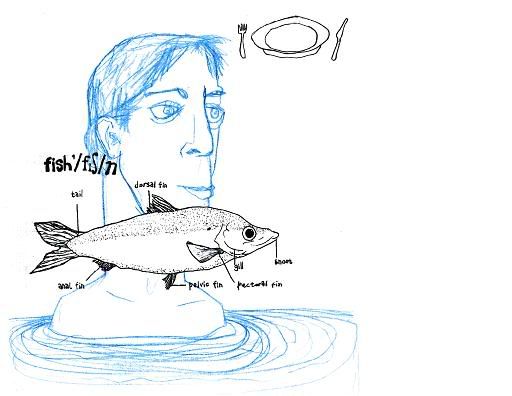At eighteen I secretly pursued a dream of publishing prose. I had a collection of short stories in mind; twenty one short stories of bittersweet nostalgia written by a teenager. I lived my life with a butterfly net in hand at all times, ever ready to frame reality into what I hoped were poignant compositions. My short stories were snippets of overheard or memorized dialogue punctuated by two or three descriptive paragraphs of silence that were all middle; no beginning and no end.
Nothing ever came of these stories. A few months into my military service I handed my short story collection to an army buddy of mine, who’d promised to keep them to himself. A few days later he cautiously admitted he’d passed them on to a friend of his, but for good reason. This friend, my buddy claimed earnestly, was a genius, plain and simple. He was a nineteen-year-old genius, with the soul of a poet and the mind of a scientist, and he would, in my buddy’s words, “go places”. After reading my stories, my buddy had to know what his genius friend would have to say about them, and he believed that despite my explicit orders I would like to know as well. At least he was sure I would have insisted on hearing his friend’s opinion if I’d known him myself and grasped what a genius he truly was.
“You’re not mad, are you?” he asked worriedly.
“I’m not mad.” I said.
“Good, I’m relieved.”
“So what did your genius friend say?” I asked.
“I don’t know. He didn’t say, he wrote you a letter. I have it here, I should bring it to you.”
Even though I knew nothing about this anonymous genius, the mention of a letter warmed my stomach with pleasant expectation. “What does it say?”
“I don’t know. It’s in a closed envelope, I didn’t open it.”
“Well open it now and read it to me.”
“I can’t do that.”
“Sure you can.”
“I can’t open your mail.”
“You can open my mail if I tell you to open my mail.”
“No, I can’t. You should open it and read it privately.”
“It’s not a love letter. I can handle hearing it over the phone.”
“I can’t read you the letter over the phone.”
“Yes, you can.”
“No, I can’t.”
“Just read me the letter.” I was getting frustrated.
“I’ll just give it to you when I see you.”
“Who the fuck knows when you’ll see me?!” I cried. My buddy and I were no longer serving on the same base, and during the army friends could miss each other for weeks or even months due to mismatched leave dates. “Just read me the fucking letter!”
“I don’t have it.”
“Where is it?”
“I left it at home. I’ll have it next week.”
“Ok.” I sighed. I wasn't sure I believed him, but I knew there was no point in arguing any further. I would have to wait.
I chased my buddy around for nearly two months before I received that letter from his genius friend. He simply would not read it to me over the phone. He finally left it for me at my base on a weekend. I picked it up from the guard at the gate on a Sunday morning.
I couldn’t wait, I ripped the envelope open right there.
Inside was a post-it note that read “Keep writing.” I'm sure I must have stood there for a moment or two with the note in one hand, the torn envelope in the other.
Then I threw it away and went up to my office on the base. It was a hot summer day, and I was sweating and itching in my uncomfortable starchy uniform. By the time I said “Good Morning” to the first familiar face I came across, I’d completely forgotten about that envelope, though I do remember a lingering feeling of emptiness tugging at me for a day or so, even after I no longer knew why it was there.
I haven’t thought of that letter in years. The other day I felt sadness thick enough to trigger an old memory. I looked back on the memory of that note and laughed. The laughter subsided in my head and I became sad again. With nothing else to do and no letters awaiting me at any gate, I did the only thing I know how to do; I sat down and wrote about it.

